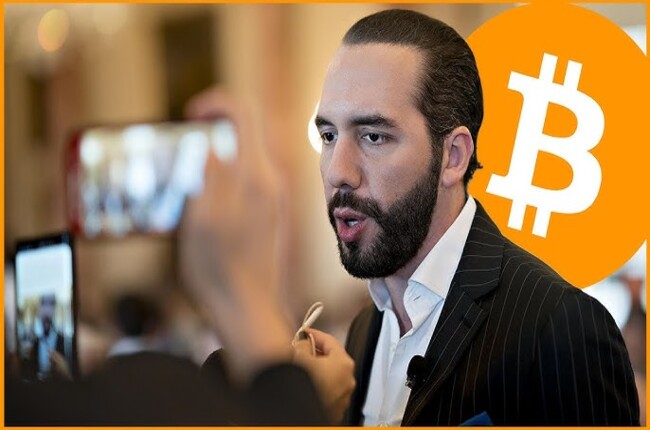Highlights:
- El Salvador’s Bukele donates Bitcoin to build schools, boosting education in Honduras.
- Despite Bitcoin use being low, El Salvador’s Bukele remains committed to cryptocurrency adoption.
- IMF urges El Salvador to limit Bitcoin exposure, but Bukele continues daily BTC purchases.
President Nayib Bukele of El Salvador donated two bitcoins for education in Honduras. Bukele gave the coins to Shin Fujiyama, the founder of Students Helping Honduras. One of the main purposes of this organization is to educate people and help lessen poverty. The National Bitcoin Office of El Salvador confirmed that the money came from Bukele’s personal wallet.
El Salvador president Nayib Bukele donates 2 Bitcoin towards building 1,000 schools in Honduras pic.twitter.com/f392YeLADF
— Airdrop Hunter (@freedom198735) October 24, 2024
Fujiyama is currently on a 3,000-kilometer charity run to raise funds for building schools. He shared that he almost abandoned the run out of fear. However, he found motivation by watching videos of Bukele. Those videos gave him the strength to continue his challenge. Stacy Herbert, the Director of ONBTC, praised Fujiyama’s efforts. She mentioned that the population in El Salvador has shown him great love and support during his journey.
Bitcoin Adoption and Integration in El Salvador
Bukele has encouraged the regular use of Bitcoin ever since he made it a legal tender in 2021. To facilitate Bitcoin transactions, the government launched the Chivo Wallet. Citizens received a $30 incentive for downloading the app. The aim behind this move was to help more people use Bitcoin. Numerous cryptocurrency ATMs were also set up by the government across the nation. People can easily exchange Bitcoin for dollars through these ATMs.
In addition, El Salvador has purchased nearly 6,000 BTC from several transactions. These operations are powered by geothermal energy from volcanoes. The country also wants to utilize renewable energy to help remedy environmental concerns that have been linked with crypto mining.
Moreover, the government has initiated educational programs. These programs aim to bring more public understanding of Bitcoin and blockchain technology.
Public Views and Challenges in Bitcoin Adoption
Bitcoin adoption rates in El Salvador remain low. A survey by Francisco Gavidia University found that only 7.5% of people utilize Bitcoin for transactions. However, 92% of respondents said they never use crypto. Only 1.3% of citizens think Bitcoin should have a large role in the future of the country.
Francisco Gavidia University has published the results of a survey of 1224 Salvadorans.
As it turned out, the majority of respondents highly praised @nayibbukele performance. Of the level of bitcoin adoption, only 7.5% actively using it. pic.twitter.com/i1s4MRfqOH
— Incrypted (@incrypted) October 16, 2024
However, 58% of participants showed trust in Bukele’s capabilities as a leader. They specifically displayed confidence in his economic and security measures. The survey was conducted among 1,224 adults from El Salvador. Although Bitcoin adoption is restricted, there appears to be general approval for Bukele’s approach.
IMF’s Stance on El Salvador’s Bitcoin Policy
El Salvador’s Bitcoin policy has been criticized by the International Monetary Fund. The IMF has asked the country to reduce Bitcoin exposure to the public sector. More recently, the IMF has even advocated for reforming the regulatory framework around digital assets. It highlighted the need to restrict the scope of the Bitcoin law.
However, Bukele’s administration continues to press forward despite these warnings. The government remains committed to buying one Bitcoin per day. The Salvadoran government currently holds 5,913 BTC in its Treasury. The IMF’s concerns highlight ongoing tension between international organizations and Bukele’s Bitcoin vision. However, the administration shows no signs of changing course.





